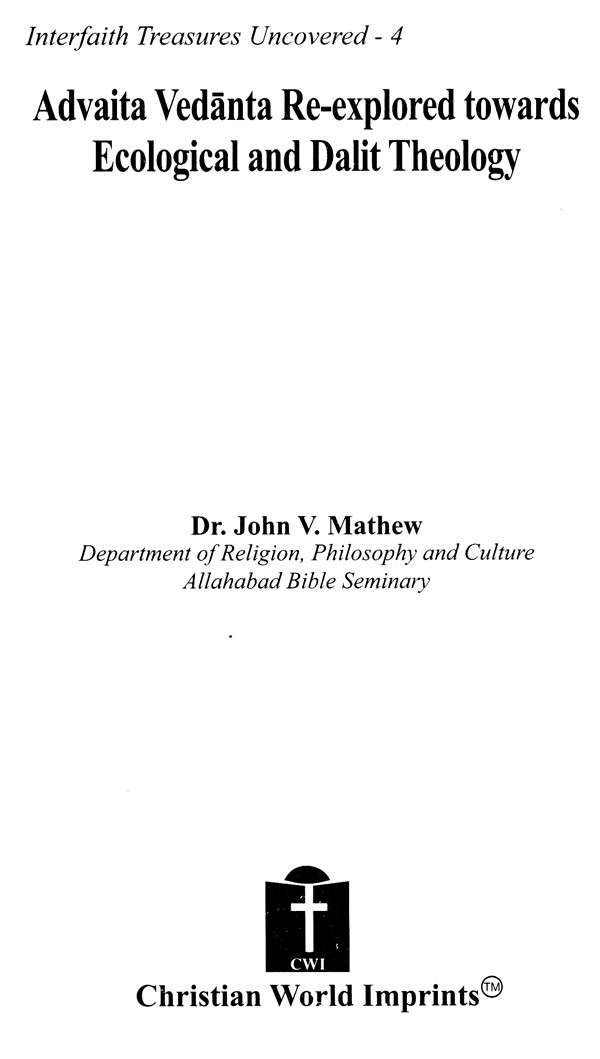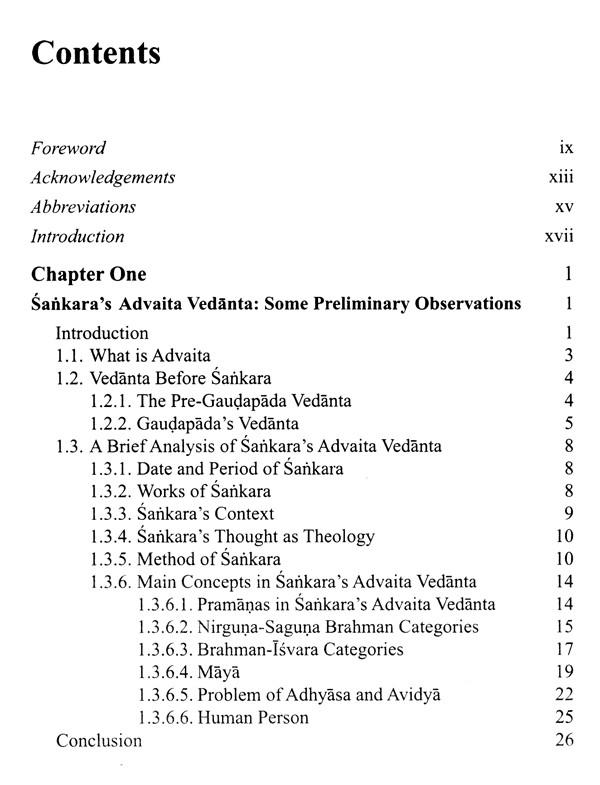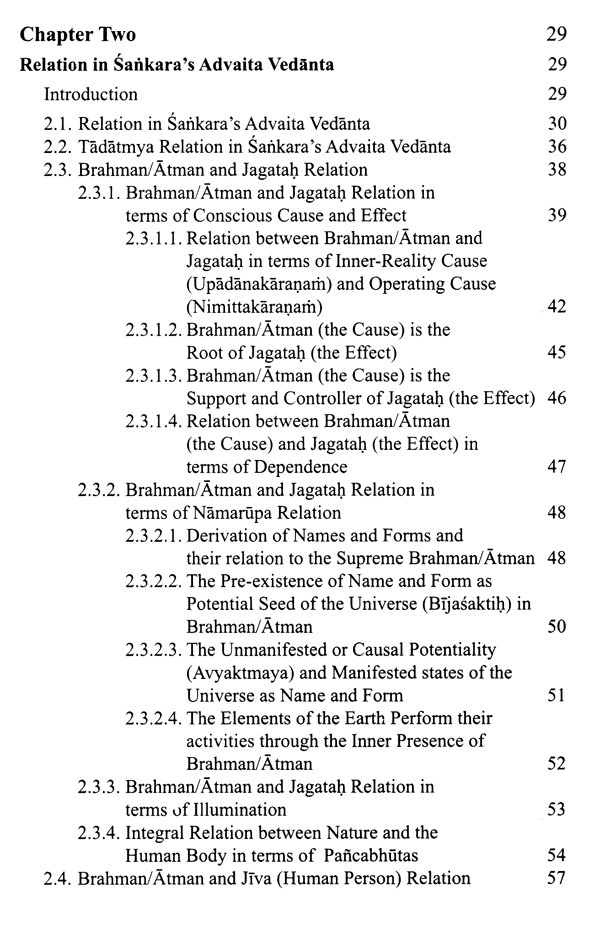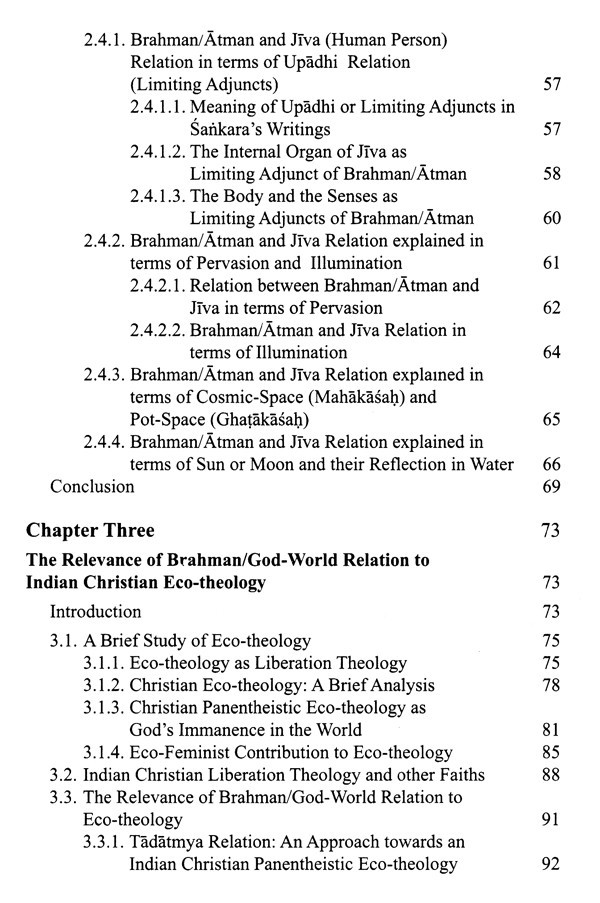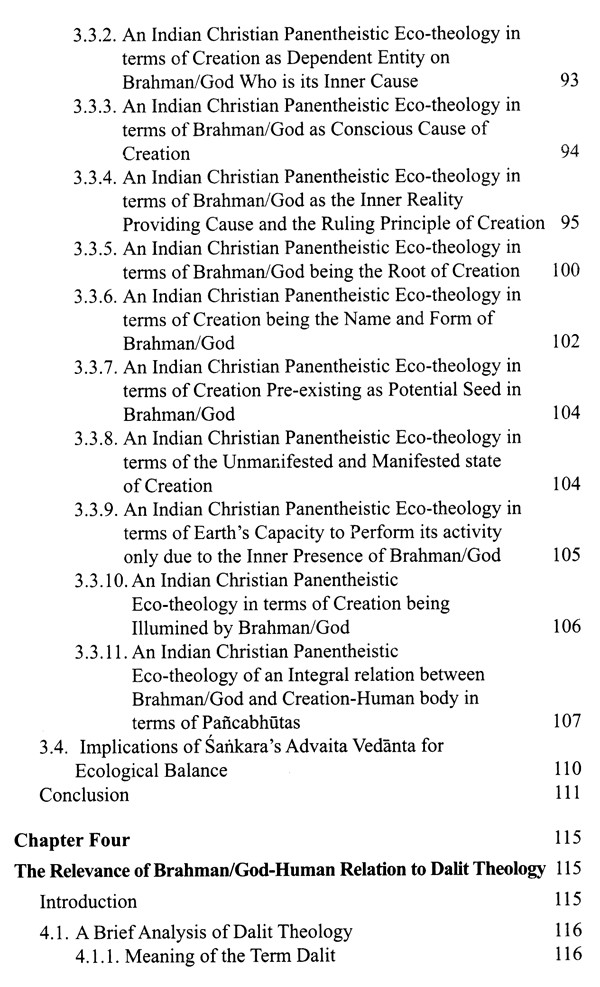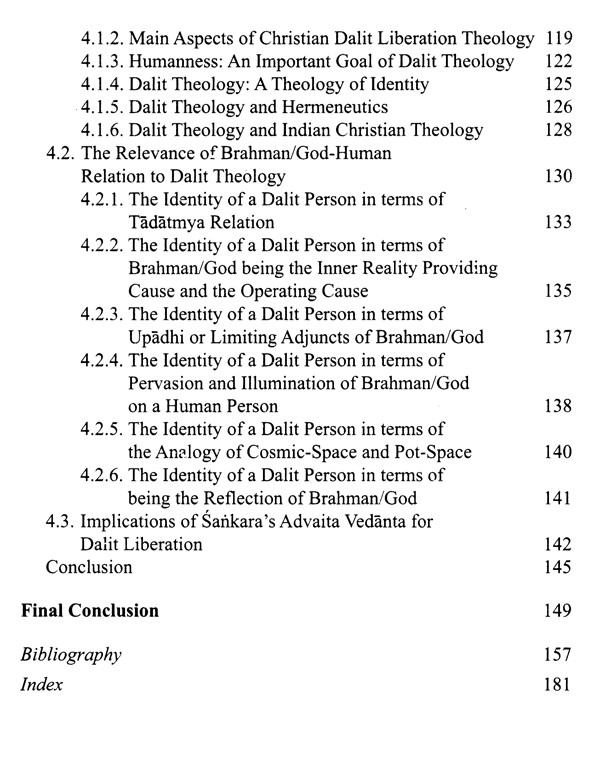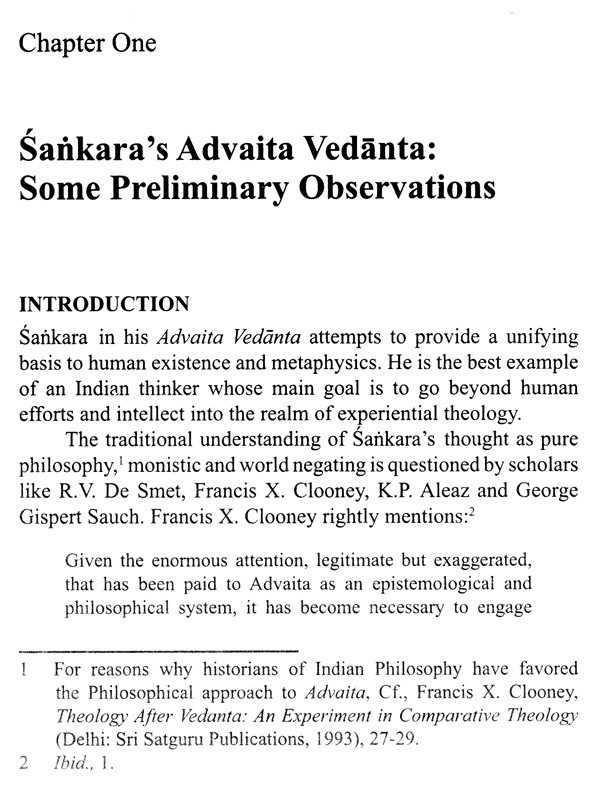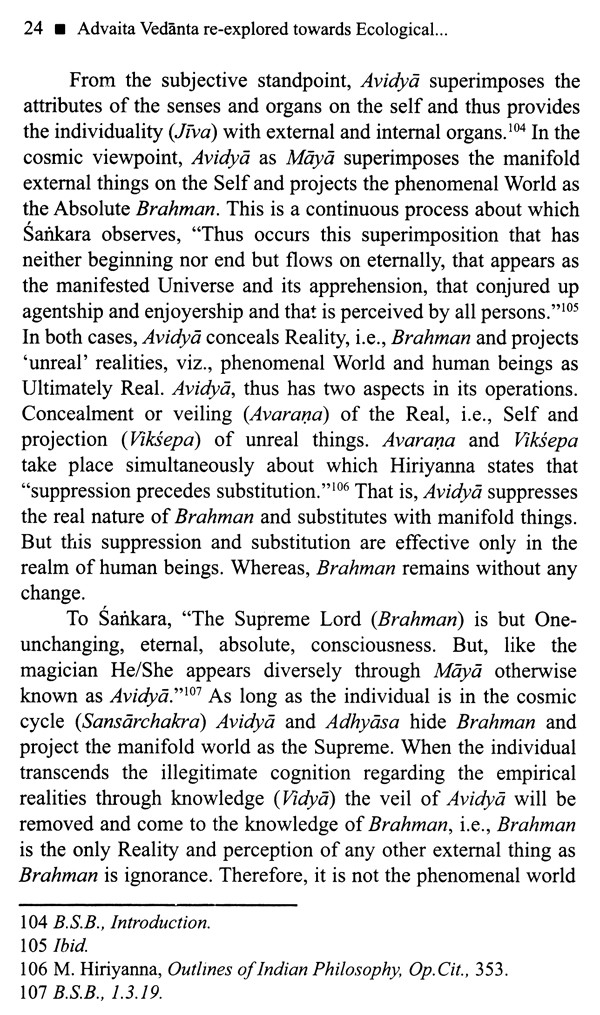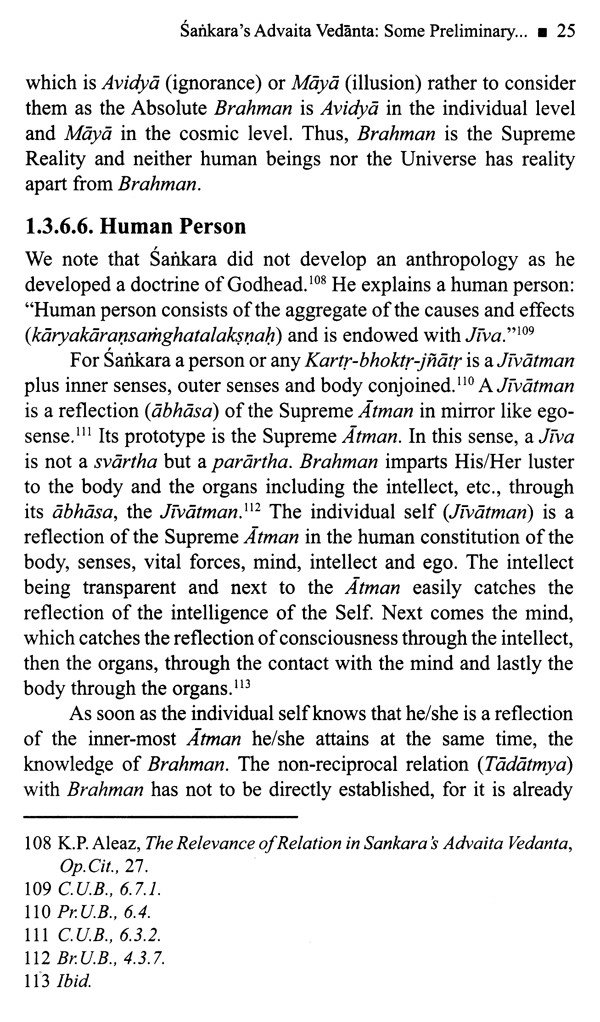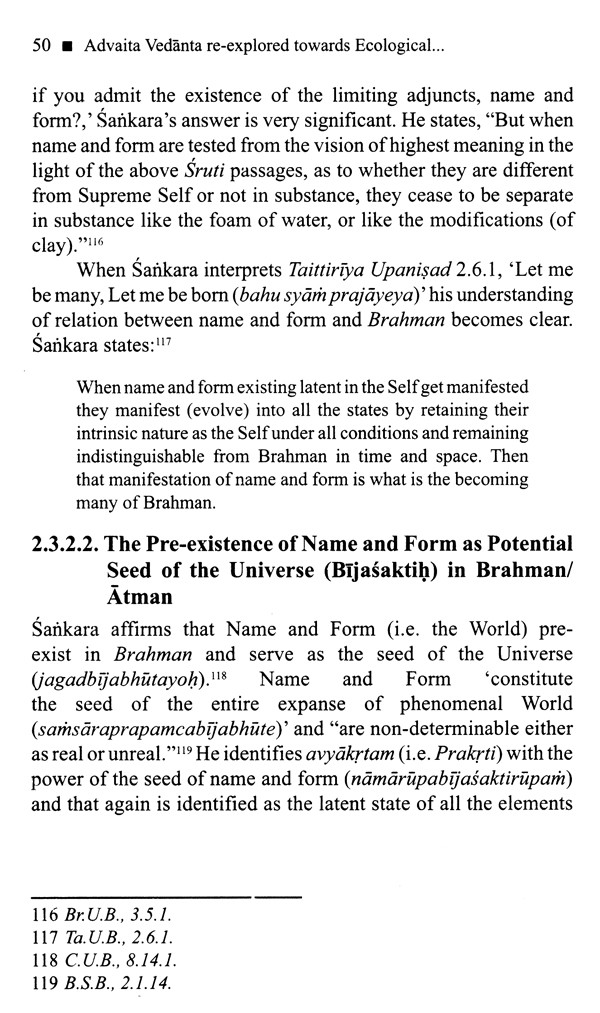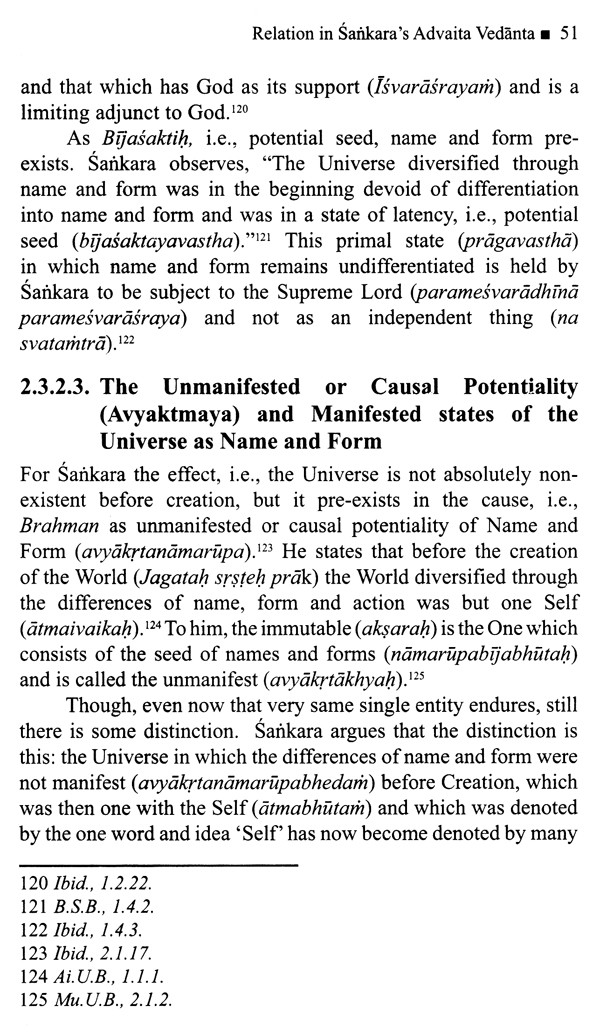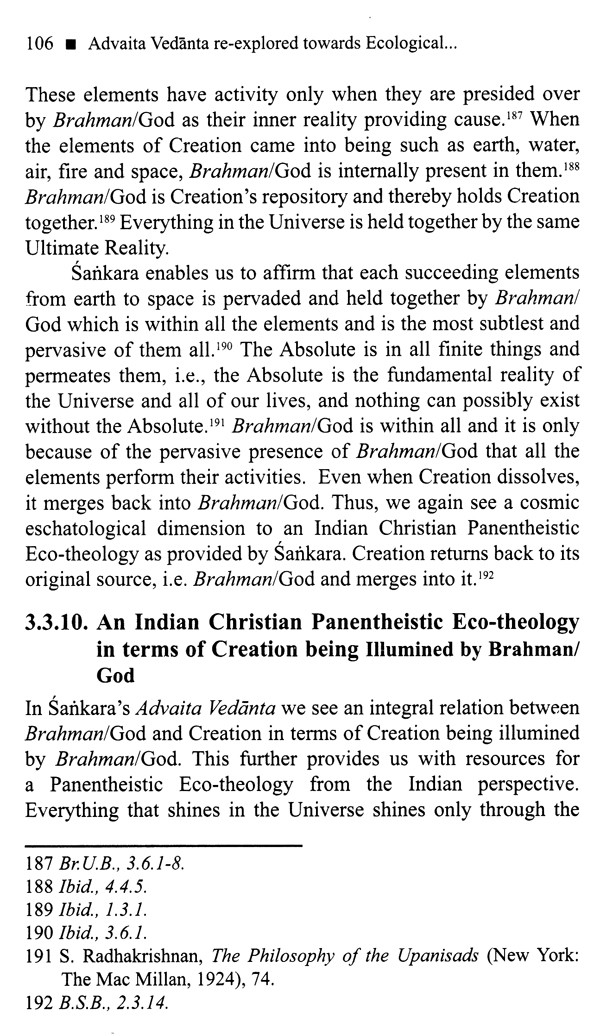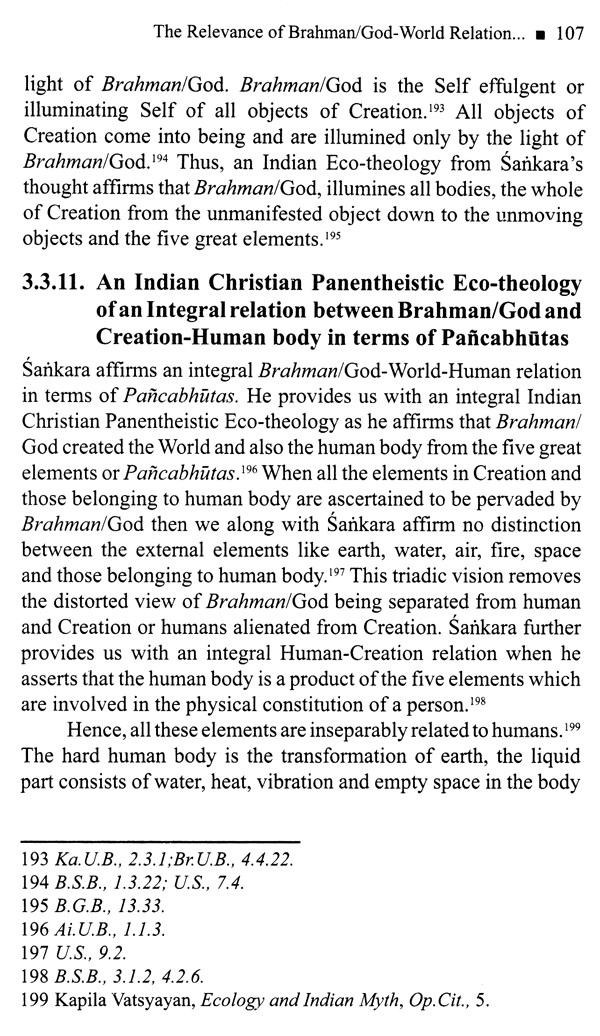
Advaita Vedanta Re-explored towards Ecological and Dalit Theology
Book Specification
| Item Code: | UAZ625 |
| Author: | John V. Mathew |
| Publisher: | Christian World Imprints, Delhi |
| Language: | English |
| Edition: | 2015 |
| ISBN: | 9789351480334 |
| Pages: | 214 |
| Cover: | HARDCOVER |
| Other Details | 9.00 X 6.00 inch |
| Weight | 410 gm |
Book Description
The book attempts to develop Indian Christian Liberation theologies, i.e., Eco- theology and Dalit theology, based on the insights gained from the study of Relation in Sankara's Advaita Vedanta and carries forward the work done by K. P. Aleaz and Richard De Smet. Sankara through his integral God-World/Human relation provides an epistemological as well as a theological basis for Eco-theology and Dalit theology in the context of ecological liberation and the ongoing struggles of Dalit Identity and liberation. The sanctity of Earth as well as the equality of humankind is presented in this book through Sankara's thoughts. The God- World relation insights in Sankara's thought backs Eco-theology and provides the wider green movements with a comprehensive vision. It also enable us to remove all hierarchy in the social order and antagonism based on caste, culture and religion.
The book affirms that a dialogical relationship and a relational convergence between Vedantic theology and Indian Christian theology is made possible in terms of developing Indian Christian Liberation theologies through Sankara's integral God-World/Human relation. This book is a must read for students of Indian philosophy, Christian liberation theology, and for those who are involved in building a Society that will contribute towards removing the antagonistic social order.
Dr. John V. Mathew is a member of the Church of South India (CSI), Madhya Kerala Diocese. He began his theological journey from Union Biblical Seminary, Pune (UBS), by completing his Bachelor of Divinity in 2004 and went on to obtain his Master of Theology (Religion) in 2007 and Doctor of Theology (Religion) in 2013 from the Senate of Serampore College (University), India. As part of his secular education, he obtained his Bachelor of Commerce in 1999 from Bangalore university.
At present, he is an Assistant Professor in the Department of Religion, Philosophy and Culture at Allahabad Bible Seminary, Allahabad. He is also the co-ordinator for The Centre for the Study of Indian Culture and Society (CSICS) at Allahabad Bible Seminary. He hails from the state of Kerala and cherishes his life with his wife Preeti and sons Nathan and Ethan.
I am happy to write a foreword for this book titled "Advaita Vedanta re-explored towards Ecological and Dalit Theology" by Dr. John V. Mathew, currently a faculty at Allahabad Bible Seminary, Allahabad. I was closely associated with this research work as a supervisor.
Over the past centuries Advaita Vedanta philosophy of Sankara has been exaggerated by scholars of Indian philosophy as an epistemological and philosophical system. His system of philosophy was interpreted as being acosmic and other worldly. But, the time has now come to engage extensively in a study of that school of thought in its commentarial and theological components.
In line with this the author has attempted to highlight the fact that, Śankara formulated his teachings and arguments in a genre of theological writing. He has thus undertaken this study by taking the position of Sankara as a theologian rather than just a philosopher. He rightly presents Šankara as a non-acosmic writer and as a realist.
Religion deals with the total embodied existence of human life on Earth with all its exigencies and predicament. It has the sacred duty and responsibility to ameliorate the physical, psychic and spiritual dimensions of human existence. A deep concern for human fulfillment and ecology are the main leitmotifs of all religions. Discovering God's presence and revelation in and through the cosmos and human history is a religious act. Cosmos which also includes human beings becomes the ontological extension of God. But, the ecological crisis as well as inequality among humans in the social order calls us to re-look into our religious resources. Hence there is a pertinent need to delve deep into our religious traditions for a theological basis for the liberation of nature as well as that of humanity so as to affirm a holistic spirituality.
THE RESEARCH PROBLEM
Our research problem is to investigate the possibility of applying the God-World/Human (Brahman/Atman and Jagataḥ-Jiva) relation insights of Sankara's Advaita Vedanta for the construction of Indian Christian Liberation theologies in terms of Pluralistic- Inclusivism as a viable paradigm in theology of religions. The study analyzes the Brahman/Atman and Jagatah-Jiva relation in the authentic writings of Sankara and propose through it an Indian Christian Panentheistic Eco-theology and Dalit Theological Anthropology. This Work is an attempt for an applied religion or philosophy, a relational convergence of religions, in terms of developing Indian Christian Liberation theologies namely Eco- theology and Dalit theology from within the theological resources of Sankara. The original title of the research Work has been modified for publication purpose.**Contents and Sample Pages**
